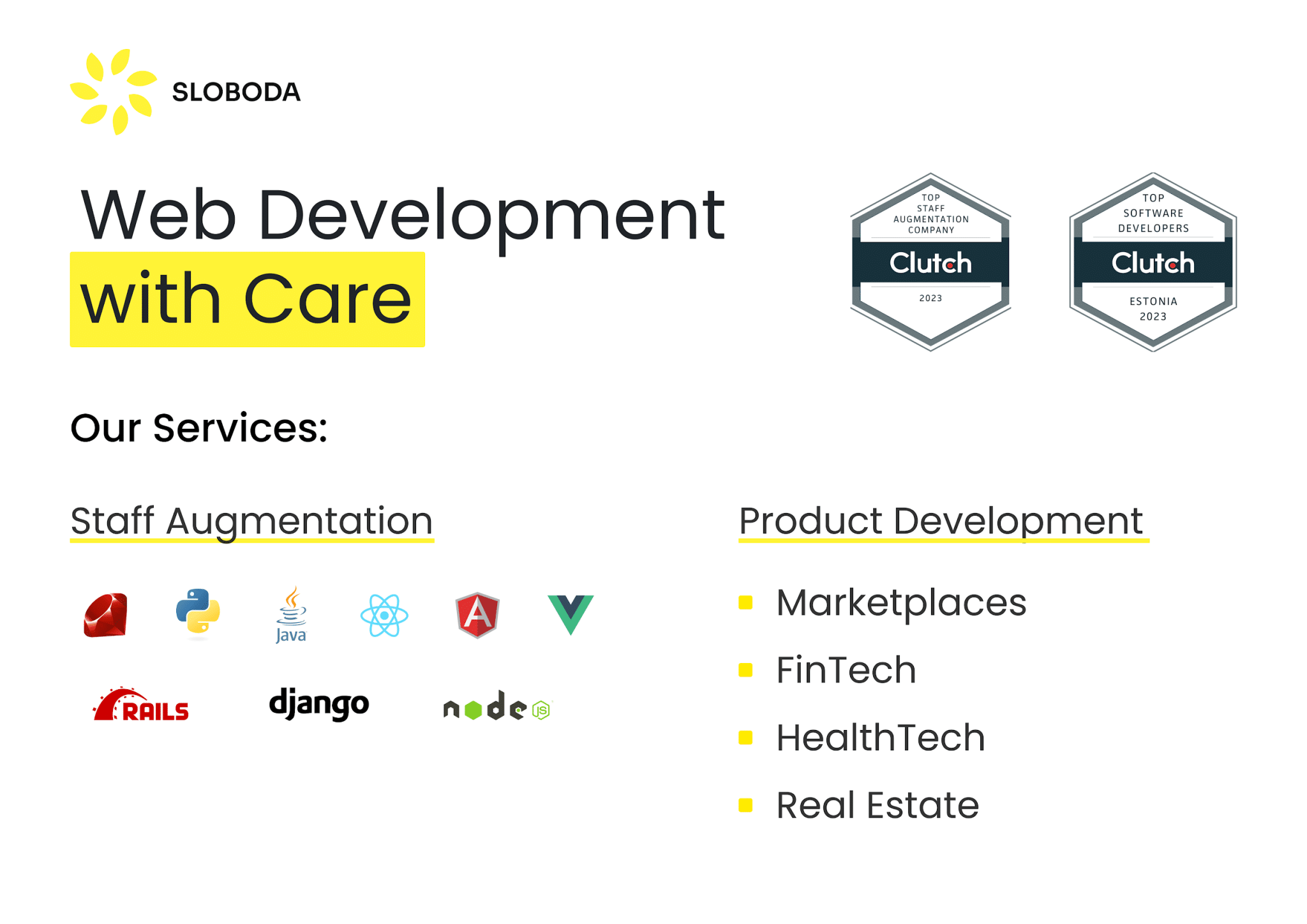In the ever-evolving world of technology, finding and retaining top talent remains a critical challenge. Building a strong development team is essential for any tech-driven organization, and a decision to hire a dedicated developer offers a unique advantage.
Dedicated developers provide a single point of contact with a deep understanding of your specific project needs, fostering streamlined communication and efficient development processes. However, securing the right individual requires a well-defined strategy.
This comprehensive guide explores the entire process, from identifying your needs to onboarding and retention, equipping you to hire and retain dedicated developers who will propel your tech projects forward.
The Importance of Dedicated Developers in Tech Projects
Compared to traditional development approaches, dedicated developers offer several advantages:
- In-Depth Project Knowledge: Unlike external development teams handling multiple projects simultaneously, dedicated developers become deeply invested in your specific project. This fosters a thorough understanding of your goals and requirements, leading to more efficient development and a sense of ownership.
- Improved Communication and Collaboration: Dedicated developers become an extension of your internal team, facilitating seamless communication and collaboration. This reduces misunderstandings and streamlines the development process. Daily hurdles can be addressed promptly, and the dedicated developer can readily adapt to changes in project requirements.
- Increased Focus and Productivity: Unlike juggling multiple projects, dedicated developers focus solely on your project. This undivided attention leads to increased productivity and faster development cycles, accelerating your project timeline and ensuring timely delivery.
Identifying Your Needs
Before embarking on the hiring journey, a clear understanding of your project needs is essential:
Assessing Project Requirements: The first step involves meticulously outlining your project goals, functionalities, and technical specifications. This includes the programming languages, frameworks, and tools needed for successful development. Consider factors like scalability, security, and compatibility with existing infrastructure.
Defining the Role of a Dedicated Developer: Clearly define the responsibilities and expectations of the dedicated developer. Will they work independently or collaborate closely with your internal team? Will they focus on front-end, back-end, or full-stack development? Understanding their role will guide your candidate selection process and ensure they possess the necessary skillset to seamlessly integrate into your development workflow.
Sourcing Talent
With your needs identified, it’s time to find the perfect match:
Utilizing Professional Networks and Platforms: Leverage your professional network and online platforms like LinkedIn to connect with potential candidates. Many developers actively showcase their skills and experience on these platforms, allowing you to explore their backgrounds and assess their potential suitability for your project.
The Role of Recruitment Agencies and Freelance Marketplaces: Partnering with specialized recruitment agencies or freelance marketplaces can provide access to a wider pool of qualified developers, particularly those with a niche skillset or experience in your specific industry.
These platforms offer pre-vetted candidates and expertise in matching developer skills with project requirements. Recruitment agencies can handle the initial screening process, saving you valuable time and resources.
Evaluating Candidates
Once you have a shortlist of promising candidates, it’s time to assess their suitability through a multi-faceted evaluation process:
Technical Skill Assessment Techniques: Conduct technical assessments tailored to your project requirements. These might involve coding challenges, code reviews, or technical interviews designed to evaluate their proficiency in the necessary languages and frameworks.
Consider providing practical coding challenges that simulate real-world scenarios relevant to your project.
Cultural Fit and Soft Skills Evaluation: Technical skills are crucial, but cultural fit and soft skills are equally important. Look for candidates who demonstrate strong communication, problem-solving, and teamwork abilities.
Consider including behavioral interview questions to assess their work style and cultural fit within your team. These questions might explore how they handle pressure, collaborate with others, or adapt to changing priorities.
The Hiring Process
With a thorough evaluation complete, it’s time to make the final decision:
Structuring Effective Interviews: Structure interviews that provide an opportunity to assess both technical skills and cultural fit. Consider including panel interviews with team members who will be working alongside the dedicated developer.
This allows the candidate to showcase their skills and personality to a broader audience, while also giving your team members a chance to assess the potential fit.
Decision Making and Offering the Job: Make a well-informed decision based on the candidate’s technical skills, cultural fit, and overall impression.
Analyze their performance in technical assessments, interview responses, and their ability to articulate solutions to potential challenges.
Once you’ve identified the ideal candidate, extend a formal job offer with a clear contract outlining the terms and conditions of the dedicated developer role. This should include details about compensation, benefits, project scope, and responsibilities.
Onboarding Best Practices
A well-structured onboarding process is crucial for integrating the new dedicated developer seamlessly into your team and ensuring their success:
Structuring the Onboarding Process: Develop a comprehensive onboarding plan that introduces the developer to your company culture, development processes, and project specifics. This plan should include:
- Company Overview: Provide a comprehensive overview of your company’s mission, values, and overall work environment. This fosters a sense of belonging and helps the developer understand the bigger picture.
- Team Introduction: Facilitate introductions within your team. Organize social activities or team lunches to break the ice and encourage informal interactions. Assign a mentor to guide the new developer and answer initial questions.
- Project Familiarization: Provide in-depth training on your project’s specific requirements. This might involve code reviews of existing codebases, documentation walkthroughs, and detailed explanations of project goals and functionalities.
- Tool and Resource Access: Ensure the dedicated developer has access to all essential tools, resources, and documentation needed to perform their tasks effectively. This includes project management tools, code repositories, design assets, and internal wikis.
Integration into Teams and Projects: Gradually integrate the dedicated developer into project tasks, starting with manageable assignments that allow them to showcase their skills and build confidence. Assign tasks that involve collaboration with your internal team members to facilitate communication and knowledge transfer.
Retention Strategies
Retaining top talent is crucial for project success and ensuring a consistent development workflow:
Maintaining Engagement and Satisfaction: Foster a positive work environment that promotes open communication, collaboration, and regular feedback. Recognize achievements, celebrate milestones, and offer opportunities for the dedicated developer to contribute their ideas and expertise.
Career Development and Continuous Learning Opportunities: Invest in your dedicated developer’s career growth by offering opportunities to learn new skills and technologies. This could involve attending conferences, workshops, or online training programs related to their field.
Consider providing a budget for professional development and encourage them to pursue certifications or participate in hackathons. Partnering with a developer network like Sloboda Studio can be highly beneficial.
Sloboda Studio connects developers with ongoing learning resources, online courses, and workshops, allowing them to stay at the forefront of technological advancements. Additionally, the network facilitates collaboration with other skilled developers, fostering knowledge sharing and professional growth.
Competitive Compensation and Benefits: Offer competitive compensation packages that include a base salary, performance-based bonuses, and a comprehensive benefits package. This might include health insurance, paid time off, and retirement plan contributions.
Regularly reviewing and adjusting compensation based on market trends and the developer’s performance helps maintain a sense of value and motivation.
Final Thoughts
Hiring and retaining dedicated developers requires a strategic and multifaceted approach. By clearly outlining your needs, sourcing the right talent, and implementing effective onboarding and retention strategies, you can build a strong, dedicated development team capable of bringing your tech projects to fruition.
Remember, investing in your dedicated developer’s success ultimately contributes to the success of your projects and your long-term business goals. A dedicated developer who feels valued, challenged, and continuously learning will be more productive, engaged, and committed to delivering exceptional results for your organization.




